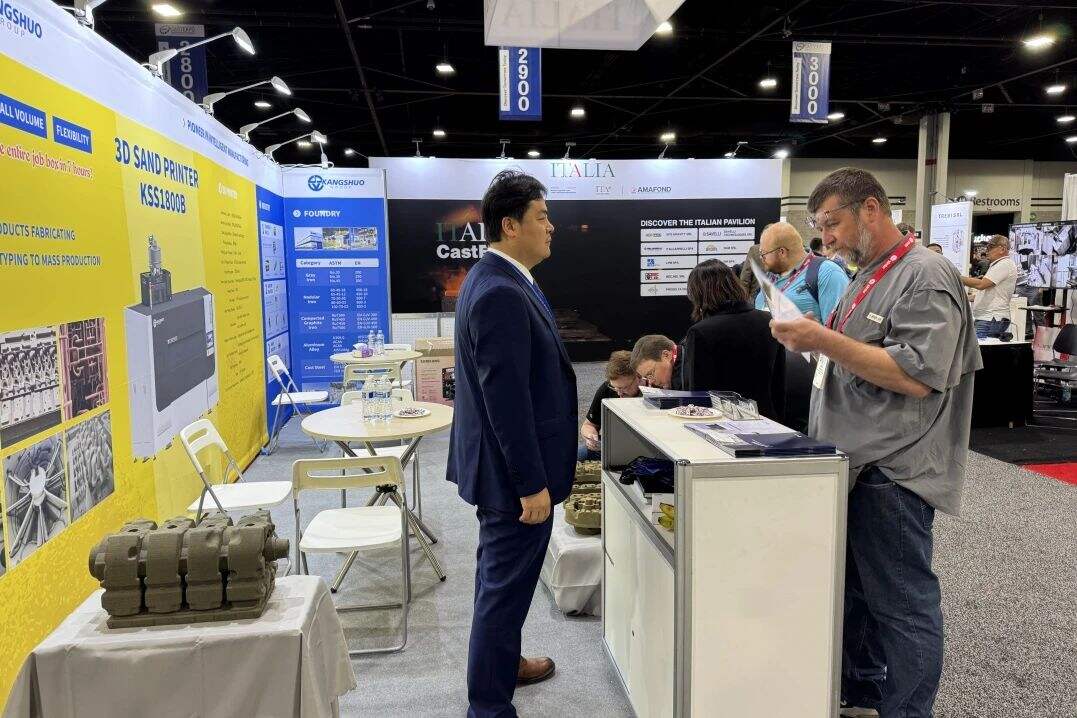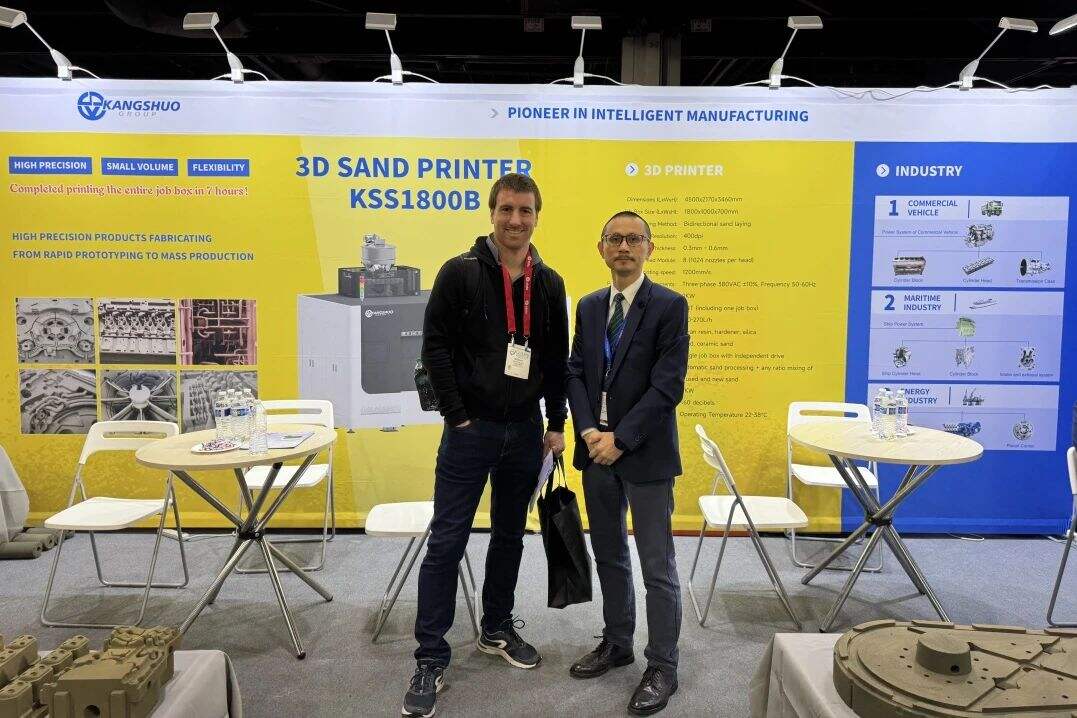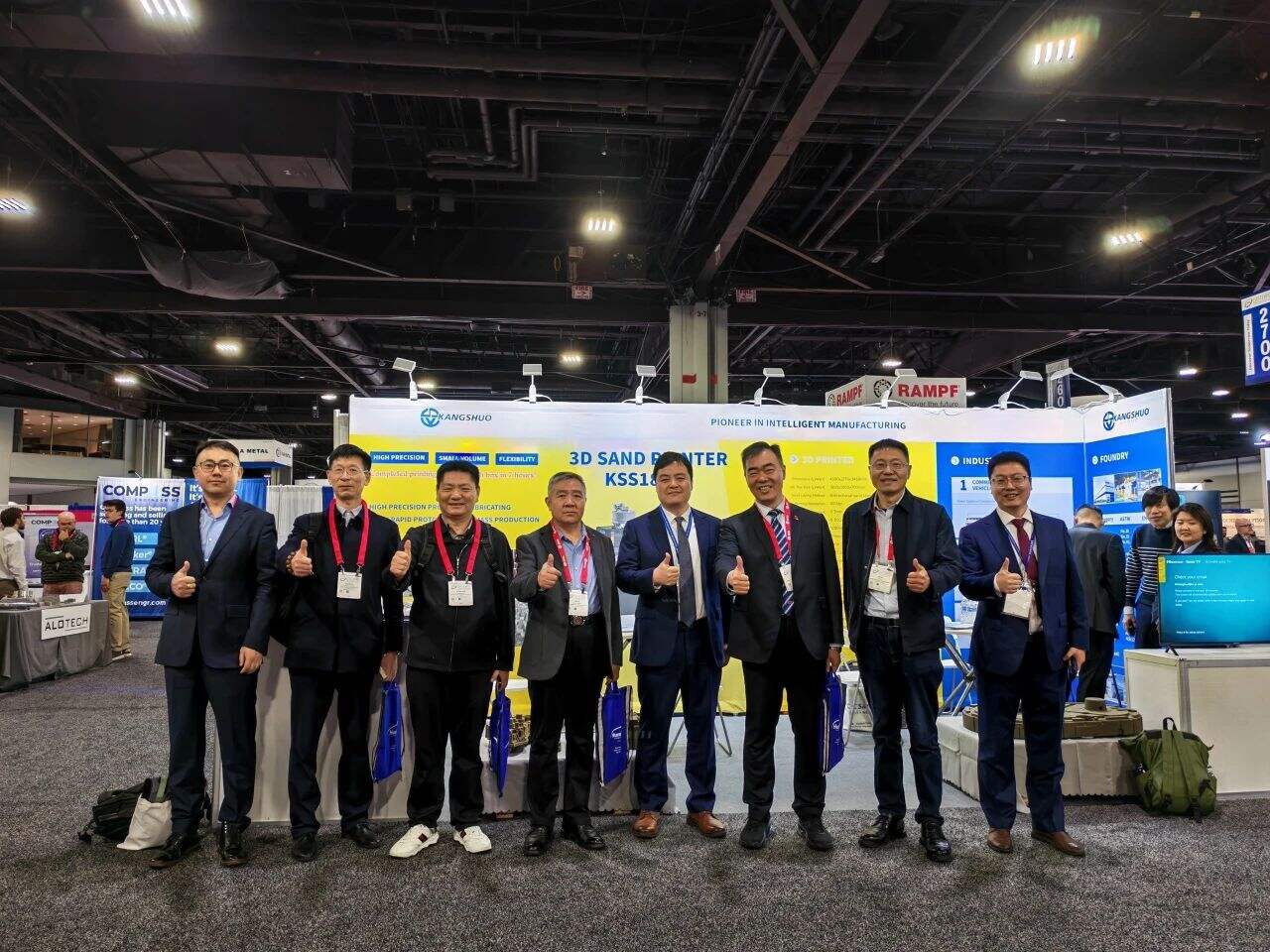H-1 Factory Building, Mingshan Industrial Park, Gaoping Economic and Technological Development Zone, Jincheng City, Shanxi Province, China. +86-15921818960 [email protected]
The 2025 World Foundry Conference (CastExpo 2025) was held from April 12 to 15. With the theme of "Discover Tomorrow Today", the conference brought together top experts, companies and innovators in the global foundry industry to discuss the current status of the industry, technological trends and future development. Kangshuo Group brought its new sand mold 3D printer and high-end casting parts to the exhibition.



01
This conference discusses the global foundry industry
Technical highlights:
- 01 -
Widespread application of additive manufacturing
Additive manufacturing technology (sand 3D printing) is revolutionizing the design and production methods of the foundry industry. Through sand 3D printing technology, molds and cores with complex geometries can be manufactured quickly without traditional tools, significantly shortening the product development cycle and reducing costs. For example, the conference demonstrated the use of sand 3D printing technology to optimize sand casting, demonstrating its advantages in improving precision and reducing material waste.
- 02 -
Deep integration of digitalization and intelligence
The foundry industry is accelerating its digital transformation and realizing the intelligentization of production processes through technologies such as the Internet of Things (IoT), artificial intelligence (AI), and big data analysis. For example, AI-driven casting simulation technology can complete simulation calculations that traditional methods take several days in just a few minutes, significantly improving design efficiency and quality.
- 03 -
Technological breakthroughs in environmental protection and sustainable development
With the global attention to environmental protection and sustainable development, the foundry industry is exploring more environmentally friendly materials and processes. For example, the bio-based foam pattern technology and chrome-free casting coating technology mentioned in the conference both demonstrate the industry's efforts to reduce environmental impact.
- 04 -
Advances in Materials Science
Breakthroughs in materials science are driving innovation in casting technology. For example, the development of new high-entropy alloys and nano-enhanced aluminum-based composites mentioned at the conference forum provide casting products with higher strength and heat resistance while reducing production costs.

02
Looking forward to the future technological trends of the global foundry industry
Further Popularization of Additive Manufacturing
Additive manufacturing technology will continue to gain popularity in the foundry industry, especially in the field of complex parts manufacturing. In the future, sand mold 3D printing technology will become more mature and the cost will further decrease, thus promoting its application in more fields.
Green casting and the rise of circular economy
As the world pursues the goal of carbon neutrality, the foundry industry will pay more attention to the development of green casting and circular economy. For example, inorganic resin printing technology is driving the foundry industry to transform towards "zero pollution". By adopting biodegradable inorganic binders and combining a circulating sand treatment system, this technology achieves zero discharge and 100% recycling of waste sand. Experimental data show that VOCs emissions are reduced by 92%, and molding sand can be completely decomposed into reusable materials within 48 hours. This environmentally friendly process completely eliminates chemical pollution in the foundry workshop while maintaining efficient production, and builds a new technical paradigm of "high efficiency-zero pollution" for the industry.
Comprehensive implementation of smart manufacturing and Industry 4.0
Smart manufacturing and Industry 4.0 will become the core driving force of the foundry industry. Through real-time data collection and analysis, foundry companies will be able to achieve comprehensive optimization of the production process, improve efficiency, reduce costs, and enhance the controllability of product quality.
Integration of interdisciplinary technologies
Casting technology will be deeply integrated with other disciplines (such as materials science, mechanical engineering and information technology) to promote the emergence of innovative solutions. For example, by combining additive manufacturing and artificial intelligence technology, foundry companies can automate the entire process from design to production.
 Hot News
Hot News2025-04-18
2025-03-31
2025-02-11
2025-02-11
2025-02-11
2025-02-11